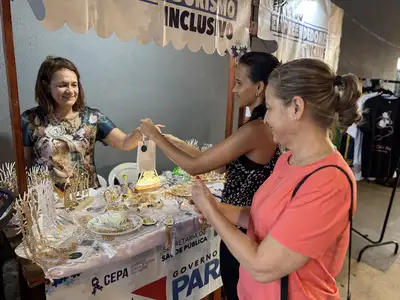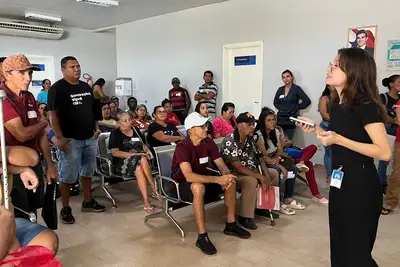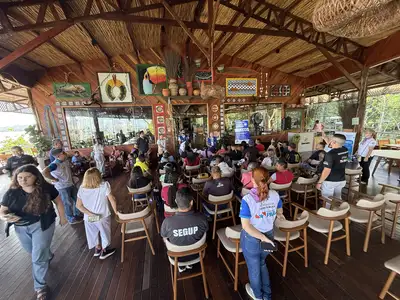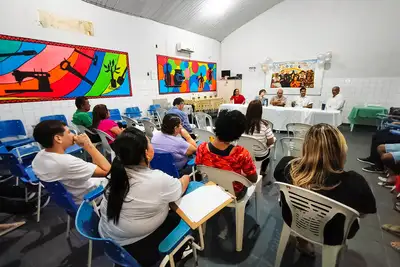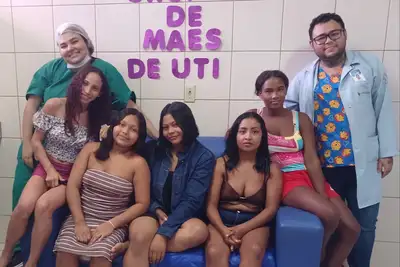CIIR Professionals Guide on Care for People with Disabilities during Pilgrimages
The Integrated Center for Inclusion and Rehabilitation instructs devotees with disabilities to participate in the processions with tranquility and safety
The Círio de Nazaré, the largest religious manifestation in Pará and one of the largest in the world, is a time of faith, emotion, and collective feeling. Every October, Belém transforms to welcome millions of people who express their devotion to the Virgin of Nazaré. Among the crowd are also People with Disabilities (PwDs) and People with Reduced Mobility.
To ensure that everyone can experience this moment with safety and comfort, professionals from the Integrated Center for Inclusion and Rehabilitation (CIIR) emphasize essential guidelines for physical, nutritional, and emotional care. Maintained by the Government of Pará, the institution, a state reference in rehabilitation, draws attention to the importance of preparing the body and mind before participating in the processions.
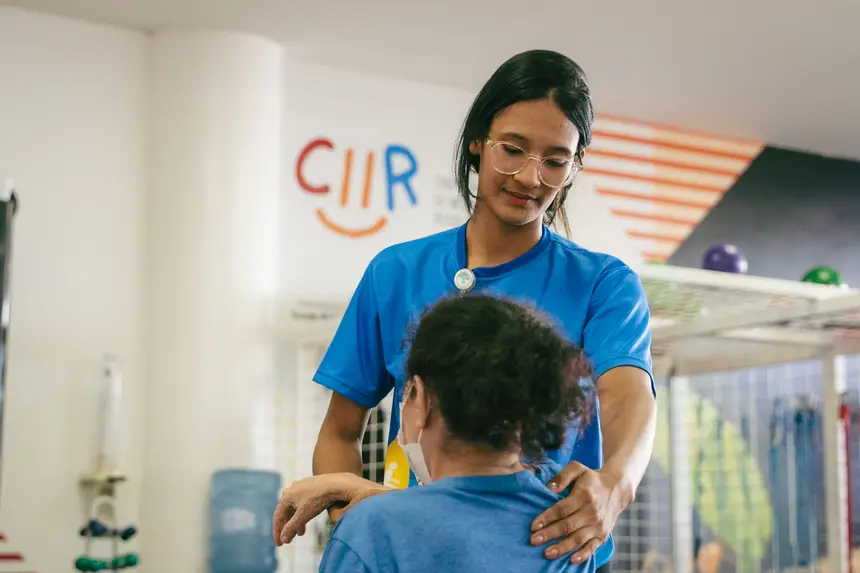
Moving Safely - Physical Education professional from CIIR, Samila Ferreira Ribeiro, reminds that the Círio involves long routes and a large concentration of people. “As with any journey that requires continuous physical effort, it is essential that the pilgrim adopts care throughout the week leading up to the walk, including a balanced and nutritious diet, as well as restful nights, which allow the body to be properly rested and in favorable conditions to face the route,” advises the educator.
She also emphasizes that, considering the route, it is equally prudent to use mobility aids, such as crutches, canes, and appropriate and comfortable orthopedic footwear, which provide stability and impact absorption, favoring a more balanced and less exhausting movement.
“The guidelines also extend to companions, who, by preparing physically, ensure not only their own well-being but also the safety and effective support for the pilgrim they are accompanying,” adds the professional.
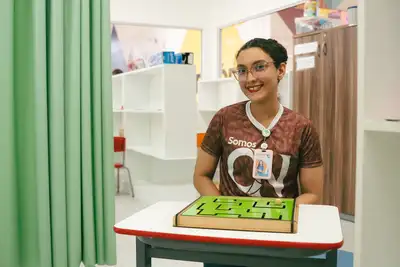
Sensory Comfort and Planning - CIIR occupational therapist Liz Siqueira reinforces that planning and organization are fundamental for People with Disabilities to participate in the pilgrimages with safety and comfort.
According to her, care begins before leaving home. “It is important to prepare some essential items: light clothing, water, sunscreen, a cap, and, if possible, a sound muffler, especially for children with auditory sensitivity. The companion also needs to be prepared to deal with any discomfort, providing predictability and tranquility for the person with a disability, whether a child or an adult,” explains Liz Siqueira.
The therapist recommends that family members and caregivers familiarize themselves with the pilgrimage route in advance and identify support points. “These locations can serve as shelter in case of rain, extreme heat, or any unforeseen events,” she warns.
The professional also highlights the care needed for the sun and heat typical of the Círio period. “In addition to sunscreen, it is advisable to wear light fabric shirts with UV protection and appropriate pants or shorts. Footwear needs to be suitable. The ideal is to opt for comfortable sneakers. Sandals and open shoes should be avoided,” she reinforces.
To reduce stress and ensure the well-being of children with disabilities during the journey, Liz Siqueira suggests bringing familiar objects that convey security. “A sensory toy, a teether, a favorite item of the child, or even a calming song can help a lot. The important thing is to provide comfort and predictability amidst the movement of the Círio,” she concludes.
Faith and Inclusion - Within the official programming of the Círio de Nazaré, a special celebration reinforces the commitment to inclusion: the Accessibility Pilgrimage 2025, also known as the Accessibility Círio. The procession, aimed at People with Disabilities and People with Reduced Mobility, will take place on Saturday, October 25, from 8:00 AM to 9:30 AM.
The initiative aims to ensure that everyone can experience devotion to Our Lady of Nazaré in a safe, welcoming, and peaceful manner, with adapted structures and support from health teams and volunteers.
More than a gesture of faith, the Accessibility Pilgrimage reaffirms the social commitment of the festivity, inviting the city to see, respect, and embrace human diversity.
CIIR Guidelines for People with Disabilities at the Círio de Nazaré
- Plan your route and identify support and rest points.
- Wear light clothing, comfortable footwear, and stay hydrated.
- Take short breaks and respect the limits of your body.
- Bring light snacks and keep medication handy.
- Avoid prolonged exposure to the sun and very crowded places, especially for people with sensory sensitivity.
Reference - The CIIR is a state reference in medium and high complexity assistance for people with visual, physical, auditory, and intellectual disabilities. Access to services is done through referrals from health units, via the Municipal Regulation Center, which directs requests to State Regulation. The user's profile is analyzed by the State Regulation System (SER).
Service: The CIIR is an agency of the Government of Pará, managed by the National Institute for Social and Human Development (INDSH), in partnership with the State Department of Public Health (Sespa). The unit is located at Rodovia Arthur Bernardes, No. 1000, Val de Cães neighborhood, in Belém. For more information: (91) 4042-2157/ 58/ 59.


